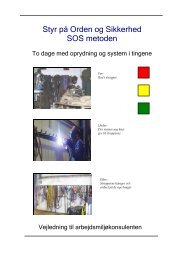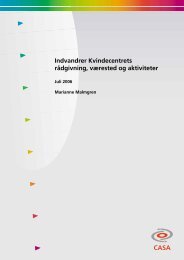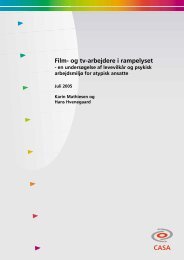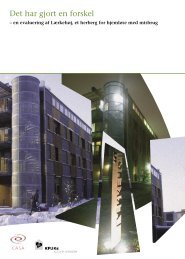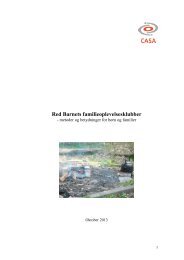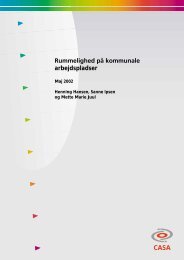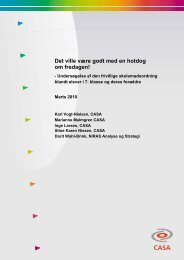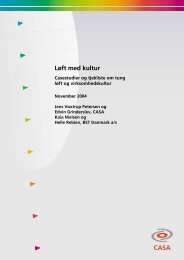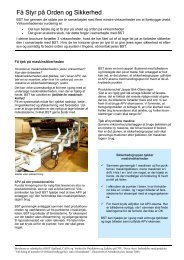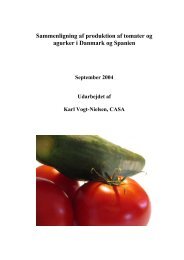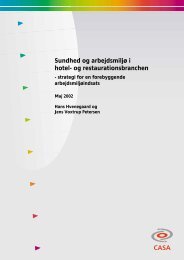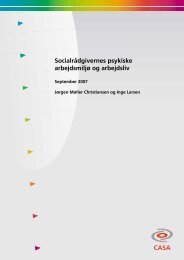Download rapport - Center for Alternativ Samfundsanalyse
Download rapport - Center for Alternativ Samfundsanalyse
Download rapport - Center for Alternativ Samfundsanalyse
You also want an ePaper? Increase the reach of your titles
YUMPU automatically turns print PDFs into web optimized ePapers that Google loves.
Many participants in the focus groups express more scepticism towards thenumber of cases involving risks rather than the actual content of the cases.Many people believe that the authorities should examine the cases in moredetail be<strong>for</strong>e they report them in order to avoid the “cry wolf” effect. Theauthorities should examine both suspicious products and associated productsthoroughly, and they should approach the neighbouring countries to see ifthey have any experience in the case in question so that the public gets anoverall picture of the in<strong>for</strong>mation. Most people believe that if an ingredient isnot acutely toxic or harmful, then it will not make a major difference.Others, and often the same as those described above, believe that the authoritiesshould in<strong>for</strong>m the public as soon as possible when they become aware ofsuspicious ingredients or products. If the authorities hesitate to report a case,and it is actually a problem, then it may cause a major setback.It is often the player who first brings a case to the light who will enjoy mostconfidence from the public. If the authorities wait until they have examined acase more thoroughly, they may risk that others will report it and they willthen find themselves in a position of defence.2.1.4 The public’s recollection and experience of the cases involving risksMany people recall cases involving risks – even though they date back a coupleof years. More women than men tend to recall such cases. There are alsoslightly more women than men, who are concerned about cases involvingrisks, who independently search <strong>for</strong> in<strong>for</strong>mation, and who follow the authorities’recommendations.More parents (25 to 50 years old) recall the case about harmful ingredients insuntan lotion two and a half years ago than among young people and seniorcitizens. The reason might be that this problem especially affected childrenand that the case started just be<strong>for</strong>e the beginning of the summer.Most of the participants in the focus groups keep moderately up to date whena case starts rolling in the media. But generally they are not particularly concerned.In contrast, the omnibus survey shows that three out of four peoplehave some concerns about cases involving risks.It is uncertain whether this difference is a reflection of the method or an actualdifference between the participants. The participants in the omnibus surveywere asked to take a position based on two cases, whereas the participants inthe focus groups were in<strong>for</strong>med about the details of three cases and they had adiscussion about the cases. The participants in the omnibus survey represent abroader spectrum of the public than the focus groups. The participants in thefocus groups were primarily well-in<strong>for</strong>med, resourceful people who were generallyactive in other social matters.Almost everyone from the focus groups expected that they could buy grocerieswithout having to worry about risks or read the instructions <strong>for</strong> use. Evenso, especially risks in food and cosmetics continue to cause concern, particularlyamong women.24




